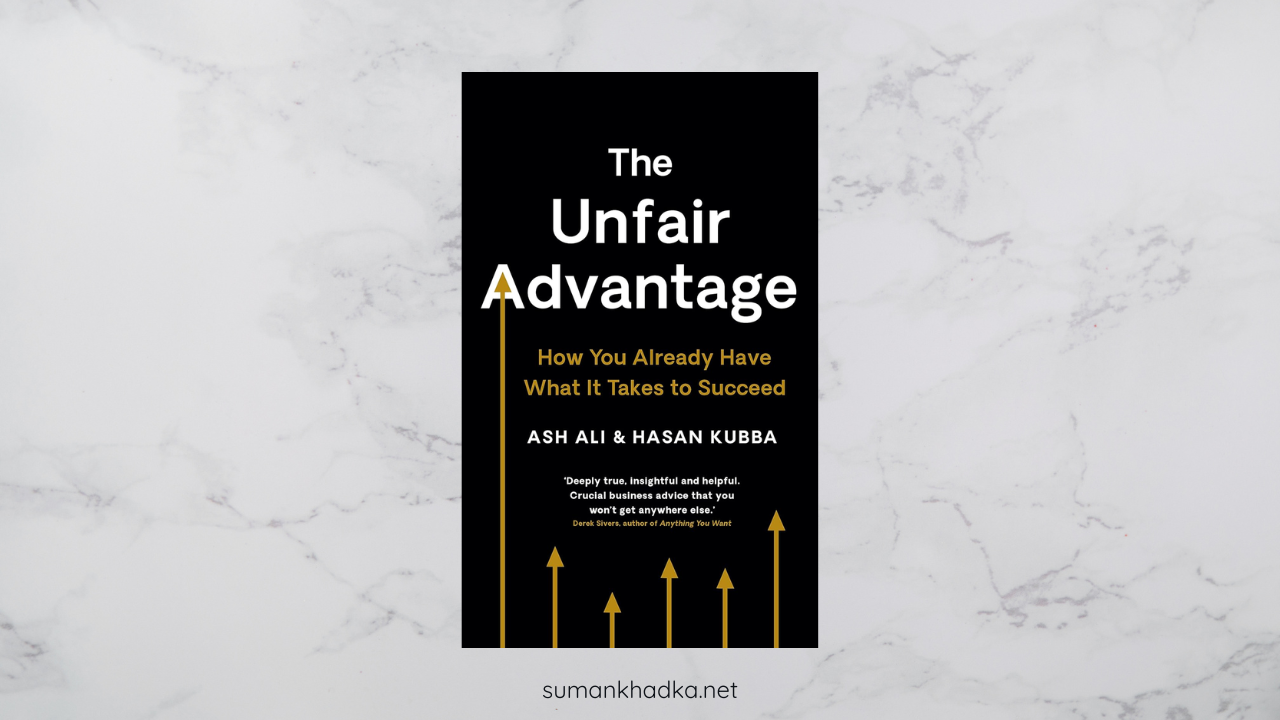
Life Isn’t Fair, and That’s Okay
I recently finished reading The Unfair Advantage: How You Already Have What It Takes to Succeed by Ash Ali and Hasan Kubba, and honestly, it changed how I see things. The book’s main idea is simple but powerful: life isn’t a level playing field, and everyone has their own unique advantages.
This got me thinking about my own life and what makes me, well, me.
What’s an Unfair Advantage Anyway?
It’s basically anything that gives you an edge. Maybe your family has money to invest. Maybe you live in a great location with lots of opportunities. Maybe you have connections that help you get your foot in the door. Or maybe it’s just a skill you’re naturally good at.
These advantages are different for everyone, and that’s the whole point.
The Things I’m Not Good At
Let me be honest: I’m terrible at starting conversations. I see my friends walk up to random people and just start chatting like it’s the easiest thing in the world. Meanwhile, I’m standing there thinking, “What do I even say?”
It’s frustrating. Sometimes I feel jealous watching them network so effortlessly. From where I’m standing, their social skills feel like a massive unfair advantage.
What I’m Actually Good At
But here’s the flip side: I’m pretty decent at programming and coding. When I’m working on a project or solving a problem through code, things just click for me. It feels natural.
While others might struggle with understanding certain programming concepts or debugging issues, I find myself enjoying the process. I can sit for hours coding without getting bored. That’s my comfort zone.
Is this fair to others? Probably not. But it’s my thing, and I’ve learned to appreciate it.
Why This Matters
The point isn’t to brag about what you’re good at or feel bad about what you’re not. It’s about recognizing that we all have different strengths.
I might never be the person who charms everyone at a party. And you know what? That’s fine. I can create things through code. I can solve problems. I can build stuff that helps people.
That’s my way of contributing, and it’s just as valid as being a great conversationalist.
Everyone Has Their Own Advantages
Think about it: we all have something we’re naturally better at than others. Maybe you:
- Pick up new languages quickly
- Have a great eye for design
- Are amazing at understanding what people need
- Can explain complicated things simply
- Stay calm in stressful situations
These are all unfair advantages. The trick is recognizing yours.
Stop Comparing Yourself to Others
When you’re always looking at what others can do that you can’t, you miss what makes you special. I spent too much time wishing I was more outgoing before I realized I should focus on what I’m actually good at.
Your journey is yours. Their journey is theirs. Comparing the two doesn’t help anyone.
The MILES Framework
One of the coolest things in the book is the MILES framework. It helps you identify your unfair advantages across five areas:
M – Money: Do you have financial resources or access to funding?
I – Intelligence & Insight: Are you naturally smart or do you have special knowledge about something?
L – Location & Luck: Where you live and the lucky breaks you’ve had.
E – Education & Expertise: Skills you’ve learned and things you’re trained in.
S – Status: Your reputation, network, and who you know.
Looking at these five areas helps you see what advantages you actually have. For me, the “I” part connects to my coding abilities, and I’m working on the “E” part by getting better at it.
Not Just for Business
The book talks a lot about startups and business, which makes sense since the authors are entrepreneurs. But honestly, these ideas apply to everything:
- Your career path
- Personal projects
- Learning new skills
- Building relationships
- Finding what makes you happy
Understanding your strengths helps you make better choices in all these areas.
What You Should Do
Next time you feel jealous of someone else’s abilities, stop and ask yourself: What am I good at that they might not be?
Everyone has something. Your job is to figure out what yours is and use it.
For me, it’s coding. I’m not going to force myself to become a networking expert overnight. Instead, I’ll keep getting better at what I enjoy and what comes naturally to me.
My Take on It
I genuinely enjoyed this book. If you’re someone who feels like you’re behind or don’t have what it takes, give it a read. It talks about the MILES framework, different mindsets, and how to spot your own advantages.
The main message stuck with me: stop trying to be someone else and start being the best version of yourself.
Have you thought about your own unfair advantages? What comes naturally to you that others find difficult? That’s where you should focus your energy.